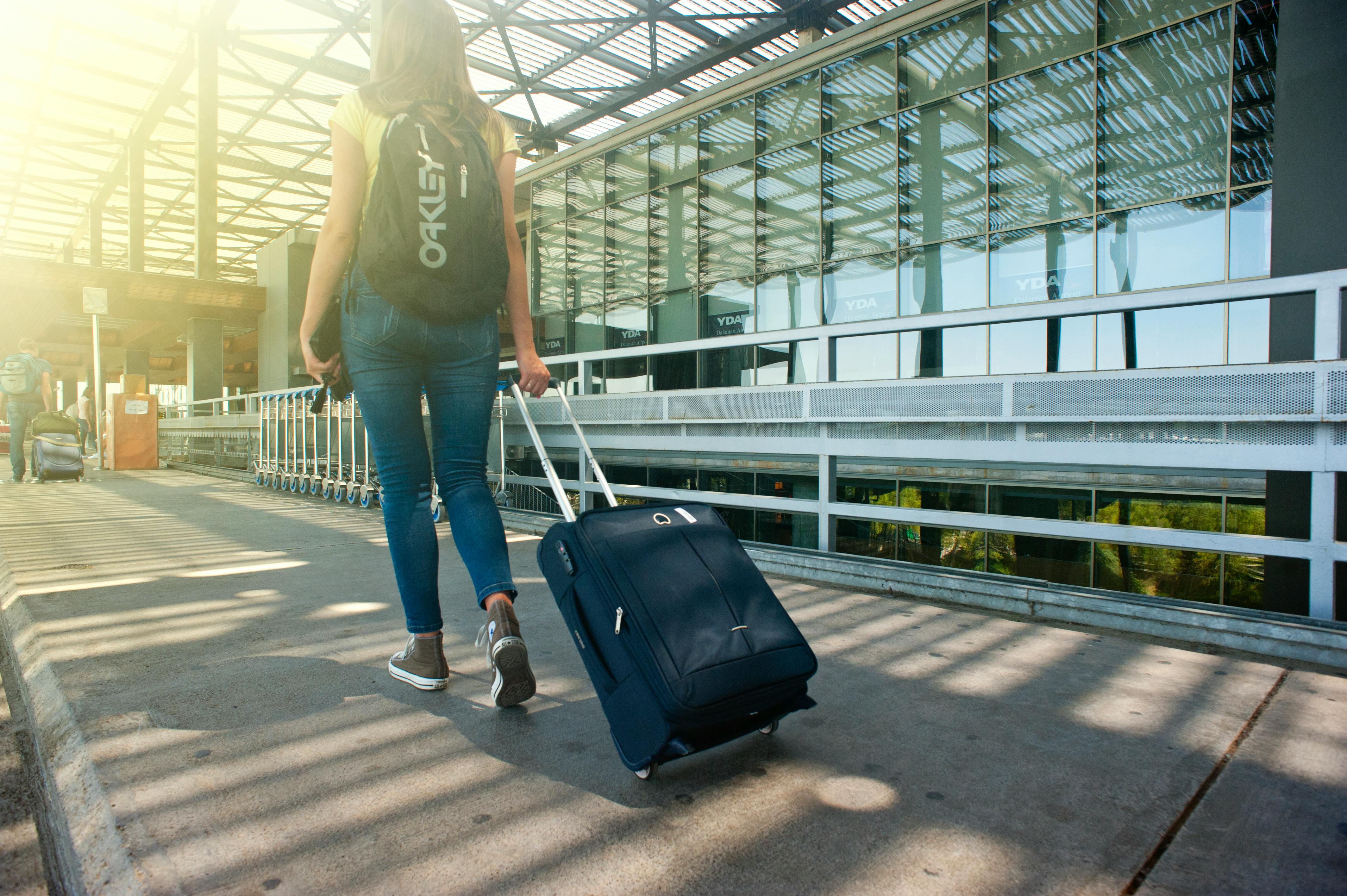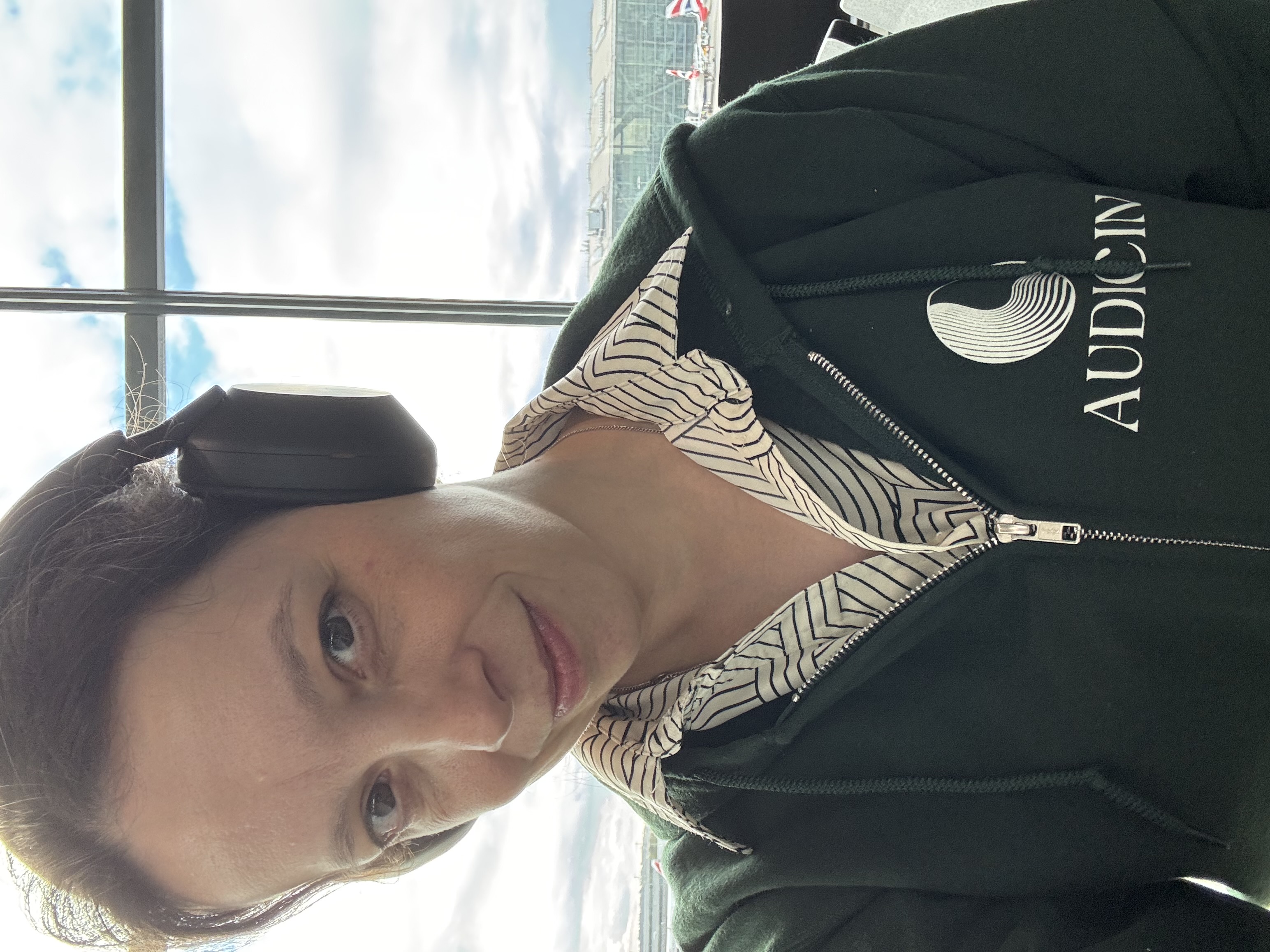I Beat Jet Lag with Audicin !

Long-distance travel is a normal part of modern life - whether you’re serving in the DoD, competing internationally, or, like me, flying across time zones for work, in my case to launch Audicin 2.0 as part of Austin Tech Week 2025.
I travelled from Barcelona to Austin, Texas for the launch - a 7-hour time difference that would normally leave me wide-eyed at 3 a.m. and foggy all afternoon.
But this time, something was different. Being a scientist I was keen to do an experiment , so I crafted a protocol for me to use Audicin throughout my journey - before, during, and after travel. I was amazed by how well my body adjusted. I slept at least 7 hours every night, both at home and abroad. Except on the plane ... I just can't sleep sitting upright !
Minimal jet lag, no crazy fatigue crashes - just smooth, balanced days.

The Jet Lag Challenge
When we travel long distances, our internal clock, our circadian rhythm, gets thrown off. Light exposure, meal timing, and movement all signal “time” to our body. Crossing time zones confuses these signals, leaving our nervous system struggling to recalibrate.
The result? Poor sleep, daytime drowsiness, irritability, and a sluggish mind. All symptoms of a body whose internal systems are out of sync.
Nervous System Regulation: The Hidden Key
Our nervous system sits at the centre of this adjustment process. It’s the link between our brain, body, and environment. It is constantly scanning for cues of safety, rest, and activity. When it’s well-regulated, the nervous system adapts quickly to new rhythms; when it’s not, it resists change.
This is where Audicin comes in.
By using neuroacoustic stimulation, the gentle patent-pending sound frequencies designed to guide the brain into specific states, Audicin helps stabilize circadian rhythms from the inside out.
During travel, I used:
- Delta-range stimulation for deep recovery - even though I couldn't sleep due to being seated, this time allowed for rest and consolidation
- Theta and Alpha-range stimulation to wake and reset during the day
The result? My nervous system stayed anchored, even while my surroundings changed dramatically.

The Audicin Travel Protocol
Whether you’re flying for duty, competition, or adventure, this 5-step Audicin Travel Protocol helps your body stay regulated and resilient through time zone shifts.
1. Before You Fly: Prime Your System
- Use Audicin Sleep (Delta) for 3 nights before departure.
- Go to bed slightly earlier or later depending on your destination’s time zone. I was flying west (backwards in time) so I went to bed an hour later each night.
- Hydrate well and eat light to support your parasympathetic (rest) system.
2. At the Airport: Regulate Early
- Use Audicin Relax journeys while waiting to board. My favourites are "Crisis Recovery" and "Nature Walk".
- Avoid overstimulation. Airports are sensory overload zones. I like to walk around by the windows to keep a sense of natural light and the sky.
- Think of this as “pre-regulating” your system before the stress of travel.
3. In Flight: Protect Your Rhythm
- Use Audicin Delta (Sleep) or Theta (Relax) songs for long-haul rest periods.
- 8 Hour Recovery is ideal if you are planning on trying to sleep.
- Block blue light and wear an eye mask to signal “night” to your brain.
- If you need to stay awake (as I did flying west), then Audicin Alpha songs are ideal for maintaining a gentle waking state.
- Move every few hours to keep circulation and vagal tone balanced.
4. On Arrival: Reset the Clock
- On your first morning, use Audicin wake up journeys with bright natural light exposure. I love "Wake Up" and "I Didn't Sleep Well".
- Get outdoors early, light is your most powerful circadian cue.
- Avoid caffeine for the first hour at least on waking to help your natural cortisol rhythm re-establish itself.
5. After Arrival: Reinforce the New Rhythm
- Continue using Audicin Sleep songs / journeys for 3–4 nights.
- Maintain consistent sleep/wake times.
- Layer in Audicin Focus or Relax journeys during the day to continue regulating the nervous system during your busy days.
What I Noticed
Normally, it takes me three or four days to feel “normal” after crossing the Atlantic. This time, I landed in Austin ready to go. No mid-day energy crash, no restless nights, just steady, decent sleep and a clear focus.
The theory that I tested on myself worked well : when your nervous system is regulated, your circadian rhythm adapts faster, your energy stabilizes, and your sleep recovers sooner.

The Takeaway
Jet lag isn’t just about time zones, it’s about how well your nervous system can reset under unusual pressure.
Audicin provides a new toolset for that reset. A way to travel, perform, and recover with less disruption.
Whether you’re a soldier, an athlete, or just someone crossing continents, the Audicin Travel Protocol helps you stay aligned, calm, and clear no matter what time zone you wake up in.
Ready to try it on your next journey? Explore Audicin’s sleep , day time focus, and waking up journeys and start traveling in sync with your body again.
